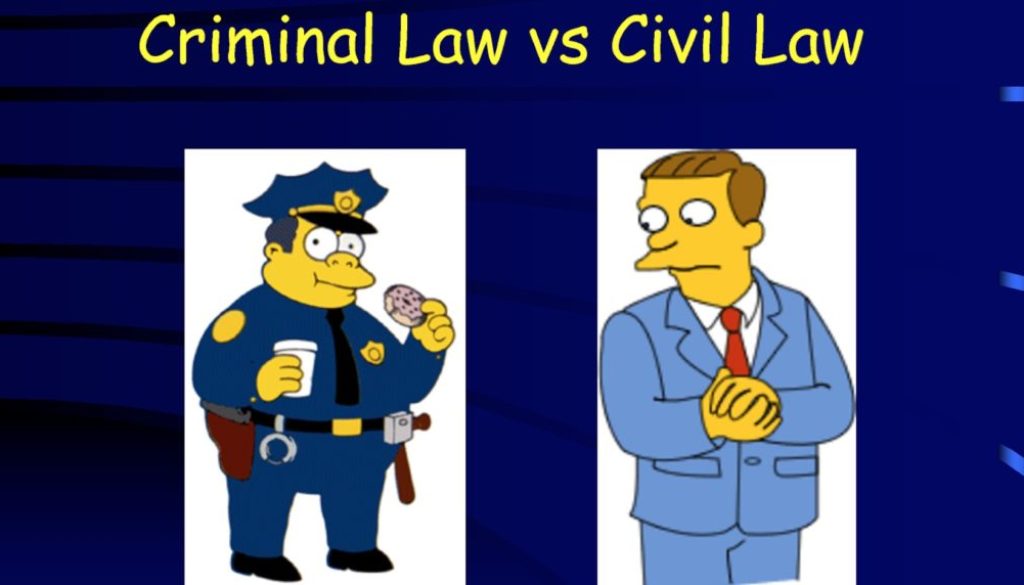Criminal Law VS Civil Law: How they are different?
What Is Civil Law?
In basic terms, it is used to govern a dispute between two or more private parties. It is a body of rules that outline the private rights of an individual, and the solution to disputes between them. The law covers a variety of issues like family law, contracts and property.
What Is Criminal Law?
It is the law used to deal with a crime that is classed as an offense against the state. Furthermore, it defines the type of conduct which the government prohibits. The reason for this prohibition is that it can threaten or harm the public safety or welfare of individuals, or society. It also lays down the punishment which is imposed in the event that an individual, or an organization, commits these acts.
How Are They Different?
There are certain actions which may result in an individual, or an organization, being liable under both the criminal and civil laws. An example of such a case is aggravated battery. It is seen as classed under both these major law entities. The victim has the right to claim damages in a civil court while the offender can be punished by a criminal court.
Overall, the law can be divided into the two categories of civil and criminal law. Civil law covers the rulings for contracts, torts, and property while the criminal law covers the rulings for crimes like assault, murder, theft and so on. Criminal law trails usually have much more media coverage than civil litigation. This results in laymen understanding crimes more then they understand civil disputes.
Both types of law have a difference in their terminology and basic goals. While the civil law is used to solve disputes between citizens, organizations, or in some cases both; criminal law is used to punish criminals. Within the civil law, the plaintiff is the person who was aggrieved while the person he sues is known as the defendant. In criminal law, the prosecution represents the states, and the accused is the person who may have committed a crime. In both cases, the court delivers a sentence.
Detail Regarding The Differences
Civil law covers the private rights, and duties, of an individual. It governs disputes which violate in cases which violate these rights. On the other hand, the cases that criminal law deals with are classed as crimes, as they are actions that the government has prohibited. These crimes are classed as actions which threaten the public welfare and safety of society.
In cases which deal with civil law, the offender is brought to court by the victim, and both parties are to bring their own private attorneys. In contrast, the state brings the criminal to court in cases dealing with criminal law. Which the defendant needs to appoint an attorney, the prosecutor represents the government.
In civil law, if the victim wins the case, then the defendant must pay compensation to them. In cases with deal with criminal litigation, the punishment is usually more severe. It may result in the offender having to pay a fine; they can also be imprisoned, or in some cases, charged with a death penalty. In some cases, certain rights of the offender may also be evoked.



